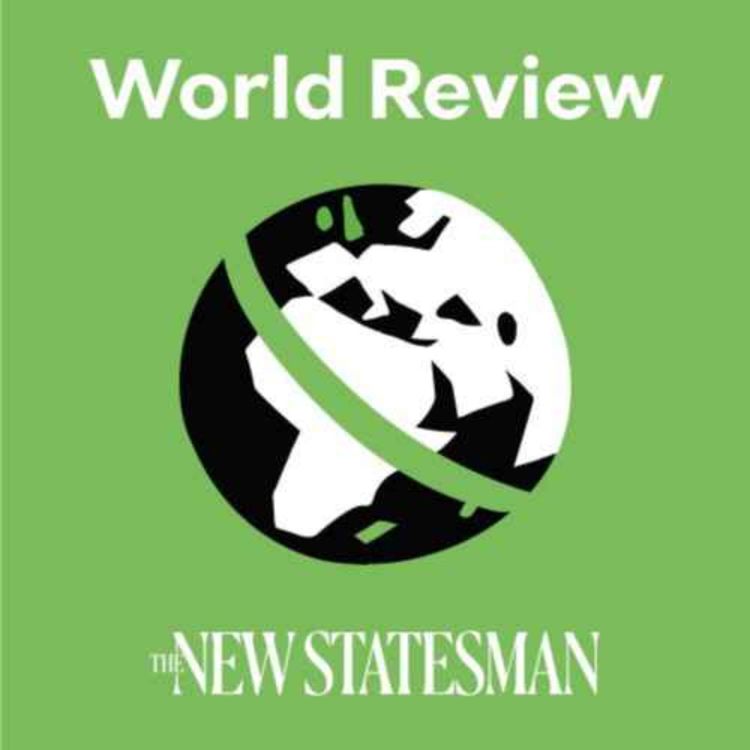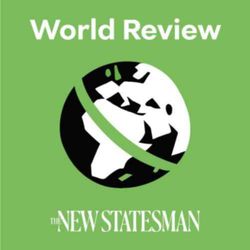Share

World Review from the New Statesman
Where will South Korea’s new president lead the country?
South Korea’s new president Yoon Suk-yeol takes office on Tuesday 10th May. Emily Tamkin speaks to Ramon Pacheco Pardo, a professor at Kings College London and author of Shrimp to Wale: South Korea from the Forgotten War to K-Pop, about the challenges facing this political outsider.
They discuss relations with North Korea after Kim Jong Un conducted another weapons test ahead of his inauguration, his promise to take a more combative stance against China, and how far his appeal to the “anti-feminist” movement during his election campaign will translate to policy.
If you have a You Ask Us question for the international team, email podcasts@newstatesman.co.uk
Podcast listeners can subscribe to the New Statesman for just £1 a week for 12 weeks using our special offer. Just visit newstatesman.com/podcastoffer
Further reading:
South Korea’s new president weaponises anti-feminism to win election.
The forgotten nuclear threat of North Korea.
More episodes
View all episodes

Losing Gaza
41:15|“We cannot know what sort of human beings will emerge from this.” Following Hamas’s deadly attack on 7 October 2023, Israel’s military response has been described as “inevitable”. Eleven months on, the scope and ferocity of that military response has stunned the world. In this episode of the podcast we speak to four of the writers who contributed to the New Statesman essay collection Losing Gaza. Raja Shehadeh: “Palestinians are not treated as human beings deserving of human rights” Ghada Karmi: “The physical damage of Israel’s assault is real enough. The mental trauma will be far worse” Raja Khalidi: “After the war, world leaders will need a new Marshall Plan for Palestine”
Susan Neiman: "It's not about being pro-Israel or pro-Palestine, but pro-human rights"
16:16|The ongoing war between Israel and Hamas has now passed the 100 day mark. On the 14 January Alona Ferber attended the Jewish Labour Movement conference, which happened to take place on the 100th day of the war. In this podcast she speaks with Susan Neiman, the American moral philosopher, about the splits this war has caused on the left and tensions she sees between tribalist currents on the left and universalist principles, which Neiman believes are the values of a true left. Read Susan Neiman's essay: The universalist tradition has been forgotten, the Enlightenment betrayedSwitch on with 50% offRefresh your perspective in 2024 with free-thinking journalism and 50% off our annual subscriptions. Simple use the code JAN50 at the checkout.*Offer ends 31st January and applies to the first year only.www.newstatesman/subscribe
How will elections shape the world in 2024?
28:18|In 2024 countries with more than 4 billion people will be sending their citizens to the polls. The US, Russia, and India to name a few; this is set to be the biggest election year in history. In this episode of the podcast Anoosh Chakelian is joined by the New Stateman's foreign correspondent Bruno Maçães and senior data journalist Ben Walker to review some of the major political forces at play around the globe in 2024. Download the app:iOS: https://apps.apple.com/gb/app/new-statesman-magazine/id610498525Android: https://play.google.com/store/apps/details?id=com.progressivemediagroup.newstatesman&hl=en_GB&gl=US Subscribe to the New Statesman WhatsApp channel:https://whatsapp.com/channel/0029Va9latS0wajogms2z02c
What does it mean to be Jewish and on the left today?
58:45|Earlier this month we published a magazine with the cover ‘Being Jewish Now’. At this time of crisis in the Middle East, with divisions over the Gaza war and rising anti-Semitism, we asked a group of writers, thinkers, and activists to reflect on the question of what it means to be Jewish and on the left today. In this episode of the podcast senior editor Alona Ferber speaks to five of the writers who contributed to this essay collection, delving deeper into the themes explored in the magazine.Fania Oz-Salzberger: This generation will never see Gazans and Israelis become fellow citizensSam Adler-Bell: Jews in the diaspora must resist the inhumanity being done by Israel in our nameOmer Bartov: Both Netanyahu’s cabinet and Hamas see this crisis as an opportunityChanda Prescod-Weinstein: Lessons of growing up black and JewishHoward Jacobson: The founding of Israel wasn’t a colonial act – a refugee isn’t a colonistBeing Jewish Now: https://www.newstatesman.com/ideas/2023/11/what-it-means-to-be-jewish-nowDownload the app:iOS: https://apps.apple.com/gb/app/new-statesman-magazine/id610498525Android: https://play.google.com/store/apps/details?id=com.progressivemediagroup.newstatesman&hl=en_GB&gl=US
Iran's interest in Israel, with former ambassador John Jenkins
28:05|Iran, Hamas and Hezbollah – all of whom operate out of Beirut’s southern suburbs – have coordinated their positions in various ways for years in pursuit of what they see as the greater good.John Jenkins, former British ambassador to Saudi Arabia, Libya, Iraq, Syria and Burma, speaks to senior editor Katie Stallard about Iran's interest in the Israel-Hamas conflict and how this will play out across the region.Subscribers get ad-free access to all our podcasts via the New Statesman app. Download it in the iOS app store or the Google Play store.Download the app:iOS: https://apps.apple.com/gb/app/new-statesman-magazine/id610498525Android: https://play.google.com/store/apps/details?id=com.progressivemediagroup.newstatesman&hl=en_GB&gl=USSubscribe to the New Statesman from £1 per week:https://newstatesman.com/podcastofferSign up to our daily politics email: https://morningcall.substack.com/
NEW: Will the Israel Gaza war spread to the wider Middle East?
27:23|**NEW EPISODE**As Israel prepares a ground attack on Gaza, Katie Stallard is joined by Alona Ferber and Professor Lina Khatib to explore the wider geo-political situation in the Middle East - including mounting violence on Israel's west bank and the looming shadow of Hezbollah in Iran.This episode was originally published in the New Statesman podcast feed. We now regularly publish Ideas and Global Affairs content on Mondays on the New Statesman podcast. Follow or subscribe here: https://podfollow.com/new-statesmanFollow the New Statesman's reporting and analysis of the crisis in Israel and Gaza at www.NewStatesman.com.Subscribers get ad-free access to all our podcasts via the New Statesman app. Download it in the iOS app store or the Google Play store.Download the app:iOS: https://apps.apple.com/gb/app/new-statesman-magazine/id610498525Android: https://play.google.com/store/apps/details?id=com.progressivemediagroup.newstatesman&hl=en_GB&gl=USSubscribe to the New Statesman from £1 per week:https://newstatesman.com/podcastofferSign up to our daily politics email: https://morningcall.substack.com/
A message to World Review listeners
01:14|Listen to Katie Stallard and Megan Gibson's discussion on Russia's war on the future here: https://shows.acast.com/newstatesman/episodes/russias-war-on-the-future-conversation Download the app:iOS: https://apps.apple.com/gb/app/new-statesman-magazine/id610498525Android: https://play.google.com/store/apps/details?id=com.progressivemediagroup.newstatesman&hl=en_GB&gl=USSubscribe to the New Statesman from £1 per week:https://newstatesman.com/podcastofferSign up to our daily politics email: https://morningcall.substack.com/
World Review is on hiatus
00:46|We won't be releasing regular World Review episodes any more. Interviews about the biggest foreign affairs stories will now be included as part of a rotation of interviews on the New Statesman podcast, available wherever you listen to podcasts.
Are China and the EU headed for a trade war? With Bruno Maçães
25:51|As the European Union weighs new sanctions on Chinese companies, which could be announced later this week, Katie Stallard speaks to Bruno Maçães, a former Portuguese Europe minister andthe New Statesman's foreign affairs correspondent,about his recent interview with Fu Cong, China's ambassador to the EU.They also discuss Beijing's likely response to the new measures, what the fall-out would be for EU-China relations, and about the difficult balancing act Chinese diplomats have sought to strike since the start of Russia's war against Ukraine. Plus, how the prospect of another Donald Trump presidency in the US is provoking unease in the corridors of Brussels. Read more: Ambassador Fu Cong: “Europe will not become a vassal to China” The world according to Xi Jinping and Vladimir Putin China’s hollow peace plan for Ukraine